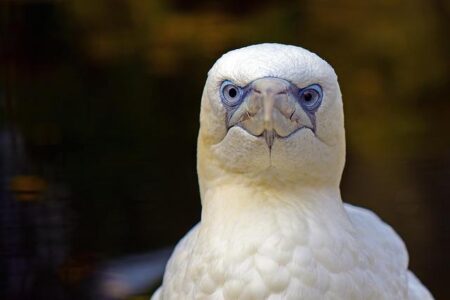Exploring Lesotho’s Dynamic Heritage of Mountain Horse Racing
Set against the breathtaking high-altitude landscapes of Lesotho, where jagged peaks stretch toward endless skies, a unique equestrian tradition flourishes: mountain horse racing. This thrilling sport is deeply embedded in Basotho culture, showcasing not only the exceptional skills of local riders but also the incredible stamina and sure-footedness of the native Basotho ponies. As race days draw near each year, communities come alive with excitement, celebrating an event that transcends mere competition to symbolize resilience and cultural identity. In this article, we delve into how these riders prepare for their challenging races while honoring a rich heritage that continues to captivate spectators from around the world.
Lesotho’s Mountain Racing Tradition Amid Majestic Landscapes
Within Lesotho’s rugged mountainous terrain lies a vibrant custom where riders skillfully navigate horses over steep inclines and rocky paths. Unlike traditional flat-track racing seen elsewhere, this discipline demands extraordinary balance and agility from both jockeys and their mounts. The Basotho pony—celebrated for its endurance at high elevations—has been an essential partner to locals for generations, serving practical roles in transportation and farming while evolving into a powerful national symbol.
Each annual mountain horse racing festival transforms quiet villages into bustling hubs filled with enthusiastic crowds eager to witness daring displays set against stunning natural scenery. These events are far more than sporting contests; they are immersive cultural celebrations featuring:
- Scenic Racecourses: Routes meander through panoramic vistas that amplify every heart-pounding moment.
- Cultural Showcases: Traditional music ensembles, vibrant dance performances, and authentic Basotho culinary delights enrich visitors’ experiences.
- Community Recognition: Victorious jockeys earn not only trophies but enduring respect as local heroes.
Training for Mountain Racing: How Lesotho’s Jockeys Prepare
The remarkable achievements seen in Lesotho’s mountain horse races stem from intense training programs designed specifically for this demanding environment. Riders—often competing bareback—must hone a diverse skill set blending physical strength with tactical intelligence.
Key abilities developed by aspiring racers include:
- Endurance Conditioning: Building stamina necessary to conquer uneven terrain over extended distances.
- Expert Horsemanship: Cultivating deep bonds with ponies through specialized handling techniques tailored to mountainous trails.
- Tactical Agility: Making split-second decisions on unpredictable courses while strategically outpacing rivals.
Local training emphasizes hands-on practice across challenging hillsides combined with fitness regimens focused on enhancing cardiovascular capacity. Modern methods incorporate elements such as:
| Main Focus Area | Training Approach |
|---|---|
| Aerobic Capacity Building | Sustained uphill riding sessions paired with interval hill sprints designed to boost lung efficiency |
| Maneuvering Skills Drills | Circuit-based simulations replicating race conditions including sharp bends and sudden elevation shifts |
| Nutritional Strategy Optimization | Dietary workshops focusing on balanced nutrition plans that maintain rider weight without sacrificing strength or energy levels |
Equine Culture Fueling Sustainable Tourism Across Lesotho’s Highlands Â
Beyond its sporting allure, mountain horse racing plays an instrumental role in advancing sustainable tourism throughout Lesotho’s pristine highlands. Adorned in colorful traditional attire reflecting centuries-old customs, jockeys enchant visitors seeking genuine cultural immersion amid untouched natural beauty.
These festivals provide tourists direct access to local traditions while promoting environmental awareness integral to Basotho lifestyles. Increasingly popular tour packages now feature equestrian activities such as guided pony treks through protected conservation zones — educating travelers about ongoing ecological preservation efforts closely linked with equine livelihoods.
This harmonious blend of culture and sustainability generates vital economic benefits supporting rural communities without endangering fragile ecosystems:
- Ecosystem Education: Guests gain insights into native plant and animal conservation connected to ancestral land management practices involving horses.
- Cultural Interaction:The exchange between visitors and locals fosters mutual respect preserving intangible heritage like storytelling centered around race lore.
- Sustainable Economic Growth:  – Artisans craft handicrafts inspired by equestrian themes; hospitality businesses flourish during race seasons creating lasting income streams.
Conclusion: Honoring Lesotho’s Rich Equine Legacy
As dust settles after each electrifying race day across rugged ridges in Lesotho’s highlands,the spirit embodied by these mountain horse competitions resonates well beyond sport.The profound connection shared between riderand pony reflects time-honored traditions deeply rooted within Basutho identity.
With rising global interest shining light on this distinctive discipline,the opportunities available for emerging jockey talent continue expanding,promising broader recognition internationally.The steadfast dedication exhibited by these athletes alongside strong community backing ensures mountain horse racing remains a vibrant emblemof resilience,culture,and pridefor future generations.
As new seasons unfoldand riders mount once again,the world watches enthralledbythe passionand grace definingthis extraordinary aspectofLesotholife.







